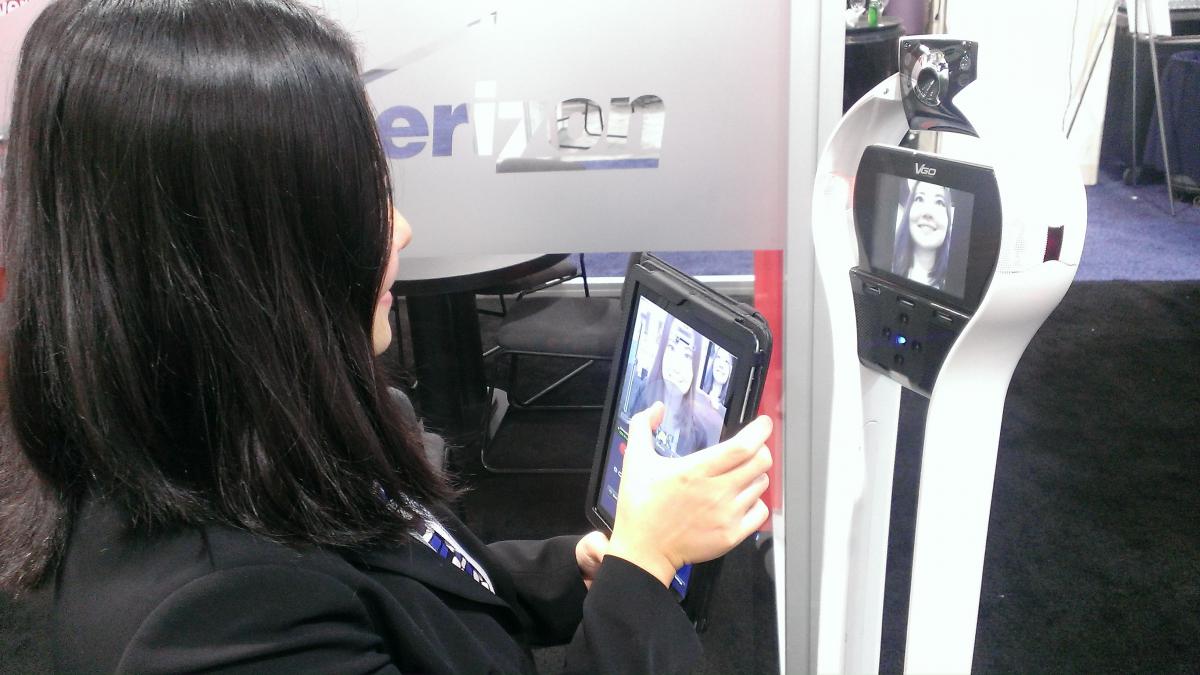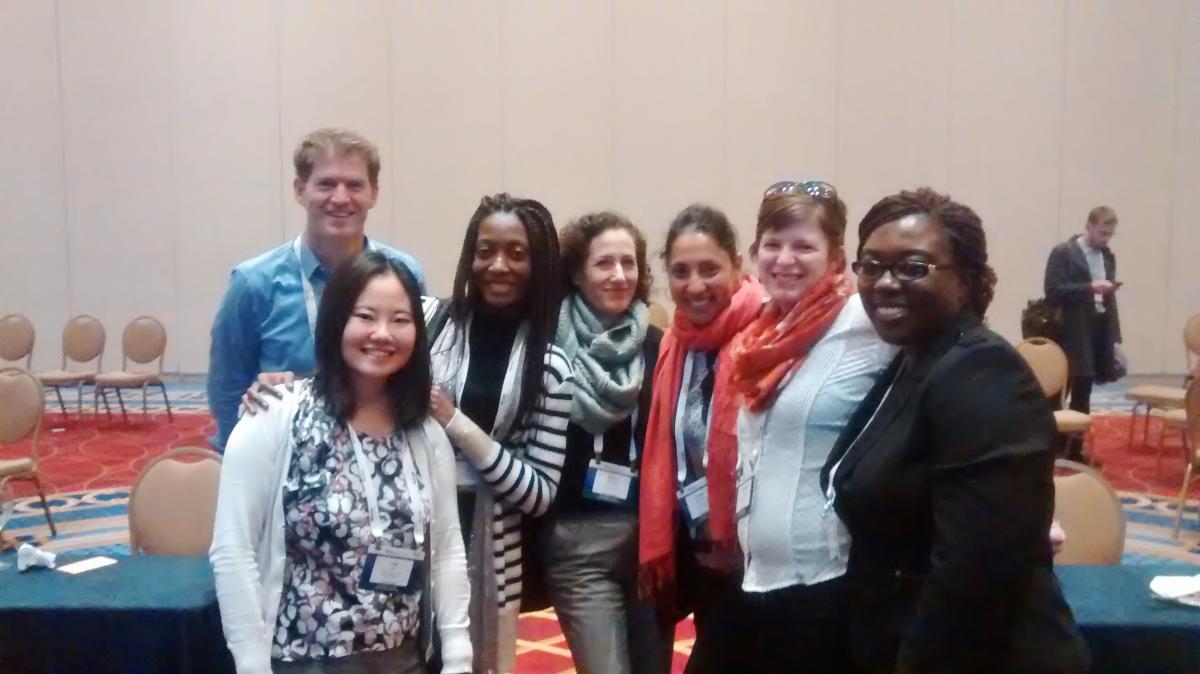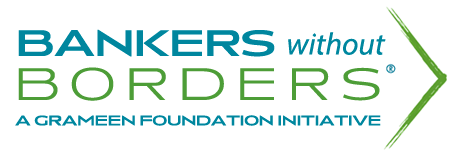 The dusty harmattan winds from the Sahara greeted me upon my return to Ghana after the holidays. After a month of cold in the eastern US and Western Europe, I admit the warm weather in Accra felt inviting. In December, I had the opportunity to represent Grameen Foundation with some of my Ghana colleagues at the mHealth Summit in Washington D.C. The largest global event of its kind, the conference attracted attendees from diverse backgrounds (private sector, government, NGOs, academics, entrepreneurs, healthcare practitioners, etc.) across both developed and developing countries, all of whom were interested in leveraging mobile technology to improve health and healthcare delivery.
The dusty harmattan winds from the Sahara greeted me upon my return to Ghana after the holidays. After a month of cold in the eastern US and Western Europe, I admit the warm weather in Accra felt inviting. In December, I had the opportunity to represent Grameen Foundation with some of my Ghana colleagues at the mHealth Summit in Washington D.C. The largest global event of its kind, the conference attracted attendees from diverse backgrounds (private sector, government, NGOs, academics, entrepreneurs, healthcare practitioners, etc.) across both developed and developing countries, all of whom were interested in leveraging mobile technology to improve health and healthcare delivery.
 Lisa playing around with a tablet-controlled robot at the mHealth Exhibition that could potentially be used as surgical assistants or during pre-op and post-op consultations.
Lisa playing around with a tablet-controlled robot at the mHealth Exhibition that could potentially be used as surgical assistants or during pre-op and post-op consultations.The first few days were more focused on issues in developed countries (the US in particular), with the general theme of creating more patient-centric solutions such as helping to remotely-monitor blood glucose, pharmacy purchases, or even how well you had slept. “Consumer engagement,” “care coordination” and “big data” were the buzz words. While it was fun learning about the pilots of Google Glass in clinical use, the problems we seek to solve at Grameen are of a more basic variety and we (and our users) certainly don’t have the budget for any fancy wearables!
Panelists for the "Future of Global mHealth" session at the mHealth Summit; John Hopkins University and GSMA are two of Grameen Foundation's major partners in Ghana.
The last couple of days of the Summit were devoted to the inaugural Global mHealth Forum, focusing on low- and middle-income countries. This year, there were over 500 attendees from over 50 countries. It was eye opening to hear about other organizations doing similar work as GF and to talk with them about shared challenges. As someone who has only been involved in the mHealth and public health field for three months, I felt like I was diving into the deep end of the pool – a feeling I've become quite familiar with since joining Grameen! I particularly enjoyed some of the more interactive workshops, one of which was called “Negotiating Win-Win Incentives for mHealth Public-Private Partnerships.” The organizers broke us up into smaller groups to design a mHealth product together while role-playing the different parties involved (implementing NGO, donor, mobile network operator, government, etc.). There was also a noteworthy session on mHealth ‘failures’ around the world – some brave souls presented on what went wrong with their programs, drawing laughter (and nods of agreement) from the audience.
Grameen Foundation Program Manager Akuba Dolphyne presenting about GF's Community Health Nurse On-the-Go product at the mHealth Summit.
Our own GF Program Manager Akuba Dolphyne was invited to present our Community Health Nurse On-The-Go product at a round-table session, which was quite popular. This was a great opportunity to have our peers engage with and give feedback for our app that helps Community Health Nurses in Ghana counsel patients, keep up-to-date on their learning, schedule important events, and stay motivated on the job. As an added bonus, I got the chance to connect with some of our Grameen US colleagues, some of whom used to be based in the Accra office and had shown me the ropes at the start of my fellowship. All in all, I’m grateful to have attended the conference and expanded my knowledge base and professional network.
 The Grameen Foundation team at the mHealth Summit (from left to right: John Tippit, Lisa Wei, Afua Ankomah, Karen Romano, Anitha Moorthy, Michaela Hayes, and Akuba Dolphyne).
The Grameen Foundation team at the mHealth Summit (from left to right: John Tippit, Lisa Wei, Afua Ankomah, Karen Romano, Anitha Moorthy, Michaela Hayes, and Akuba Dolphyne).
The three most common words I heard at the Global mHealth Forum were sustainability, scale, and impact – the wish list of seemingly every development program on the planet. Having come from the private sector, one thing I've had to come to terms with in the international development field is the reliance on donor funding, and the limitations that come with that. Because donor funding is allocated for a finite period and donors want to see ‘results’ or impact quickly, the implementing NGO often does not have the incentive, time, or capacity necessary to invest upfront in designing a long-term and self-sustaining program. What often ends up happening is the question of sustainability is brought up closer to the tail end of a grant when things are winding down; this seems to be more of an inherent flaw in the grantor-grantee relationship than an issue with any particular organization.
My over-arching mandate when I joined Grameen was to help develop sustainable business models for our mHealth programs while maximizing impact. This started with getting hands-on programmatic experience with our youth sexual and reproductive health program No Yawa last fall, which has given me more perspective into projects’ and partners’ needs, as well as the complexities of the ecosystem of players in our field and what motivates them. With seven months left in my fellowship, this month my role has shifted from operational to more strategy-focused as I work to strengthen Grameen’s engagement with various partners.
One common denominator for all of our programs is the mobile network operators (MNOs); they are the gateway for our mobile messaging services, whether it’s targeting youth, pregnant women, or farmers. Competition between the MNOs in Ghana is fierce as there is no clear dominant player. Some MNOs such as Airtel and Tigo have demonstrated interest in working with NGOs and nontraditional partners in an effort to reach rural customers and differentiate their product offerings, which bodes well for Grameen as we look to commercialize some of our programs and launch new products. I hope over the next few months, I can contribute to setting up some fruitful partnerships and continue learning about the mobile health and mobile financial services space in Ghana.
Lisa Wei is Grameen Foundation’s Mobile Health Strategy Fellow. She is based in Accra, Ghana. She can be reached at lwei@grameenfoundation.org.

